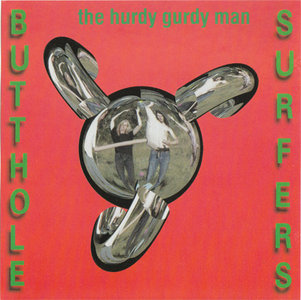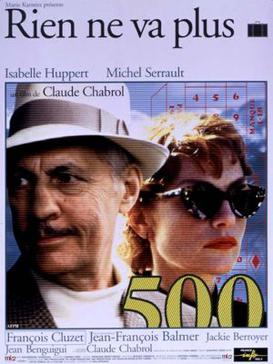
The hurdy-gurdy is a string instrument that produces sound by a hand-crank-turned, rosined wheel rubbing against the strings. The wheel functions much like a violin bow, and single notes played on the instrument sound similar to those of a violin. Melodies are played on a keyboard that presses tangents—small wedges, typically made of wood—against one or more of the strings to change their pitch. Like most other acoustic stringed instruments, it has a sound board and hollow cavity to make the vibration of the strings audible.

Keith MacLeod, was an English musician who was a part of the Hertfordshire folk and blues scene from 1959 onwards. He played in St Albans alongside Mick Softley and Maddy Prior and toured with John Renbourn. Influences include Softley, Ramblin' Jack Elliott, Derroll Adams, Jesse Fuller, Big Bill Broonzy, Snooks Eaglin, Reverend Gary Davis and Davey Graham.
Hurdy Gurdy emerged from the Danish group Peter Belli and the Boom Boom Brothers in June 1967, when three members of the B.B. Brothers, guitarist Claus Bøhling, drummer Jens Peter Marquard Otzen and British vocalist and bassist Mac MacLeod formed the power trio. Inspired by Cream but with more psychedelic leanings, they split from Peter Belli and MacLeod named the band 'Hurdy Gurdy'. They had considerable success in Scandinavia, breaking many attendance records for their live shows. The band moved to England in early 1968, after MacLeod had been deported from Denmark.

The Hurdy Gurdy Man is the sixth studio album by Scottish singer-songwriter Donovan. It was released in the US in October 1968, but not in the UK, because of a continuing contractual dispute that also prevented Sunshine Superman and Mellow Yellow from being released there. A songbook of lead sheets to the album was nonetheless issued in both countries.

Live in Japan – Spring Tour 1973 is the twelfth album from British singer-songwriter Donovan. It was only released in Japan in 1973. The album has never been released in either the United States or the United Kingdom.

Nicolas Chédeville was a French composer, musette player and musette maker.

"Hurdy Gurdy Man" is a song by the Scottish singer-songwriter Donovan. It was recorded in April 1968 and released the following month as a single. The song gave its name to the album The Hurdy Gurdy Man, which was released in October of that year in the United States. The single reached number 5 on the Billboard Hot 100 in the U.S. and number 4 on the UK Singles Chart.
The following recordings and films feature music played on the hurdy-gurdy.

The Hurdy Gurdy Man is a studio EP by American alternative rock band Butthole Surfers, released in 1990.

Nigel Eaton is a British multi-instrumentalist and composer best known for playing the hurdy-gurdy. Born in Lyndhurst, Eaton played the piano and cello before switching to the hurdy-gurdy in 1981 when his father, Christopher Eaton, began manufacturing them. Eaton has been described as the "foremost hurdy-gurdy player in popular music in North America and Europe".

L is the second studio album by British progressive rock musician Steve Hillage.
"Hurdy Gurdy Man" is a single released by the British Rock band The Spectres in 1966. This was the band's second single, and first to be penned by a member of the band. It was written by Alan Lancaster and a writer who sold his rights to the song to Pat Barlow. The B-side, although only credited to Lancaster, was co-written by Rick Parfitt, who at the time was not an official member of the band.

The Swindle is a 1997 French crime-comedy film directed by Claude Chabrol that stars Isabelle Huppert and Michel Serrault.

Andrzej Bart is a Polish novelist, screenwriter and film director. He is called the Polish Thomas Pynchon because he prefers "people talk about his books and films but leave him alone".
Hollywood Girls : Une nouvelle vie en Californie, or simply Hollywood Girls, is a French soap opera created by Alexandre dos Santos, Jérémy Michalak, and Thibaut Vales for NRJ12. The series features an ensemble cast and follows a groups of French peoples who decided to start a new life in California, but their life is quickly disrupted by the diabolical Geny G and her husband, the Dr. David Moretti.
The hurdy-gurdy is a musical instrument.

Ye Olde Hurdy Gurdy Museum of Vintage Radio is a museum of communication history based in the Martello tower in Howth, Dublin.

Hurdy Gurdy is a 1929 animated short film which is presented by Carl Laemmle and was produced by Walter Lantz, who he and his wife would go on to make Woody Woodpecker. The film, which is animated by R.C. Hamilton, Bill Nolan and Tom Palmer, features Oswald the Lucky Rabbit, who is substituted for the organ grinder's dancer, after the original one is comically swallowed up by Oswald's bubblegum.

The Hurdy-Gurdy Player with a Dog is an oil-on-canvas painting by the French artist Georges de La Tour (1593–1652), now in the Musée du Mont-de-Piété de Bergues. It belongs to his early period and forms part of a set of works on the same subject, which also includes The Hurdy-Gurdy Player. He is also featured in The Musicians' Brawl.
"Hurdy Gurdy Man" is a 1968 song by the Scottish singer-songwriter Donovan.













